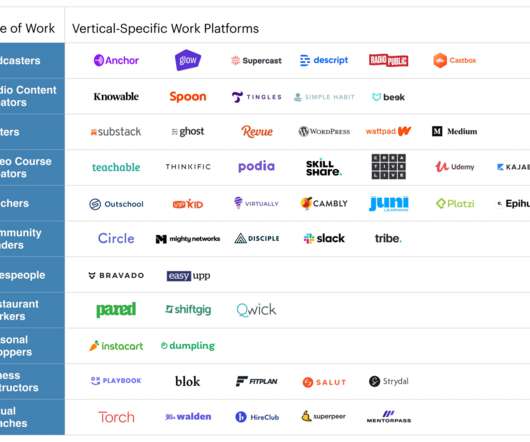I-Corps @ NIH – Pivoting the Curriculum
Steve Blank
JUNE 26, 2014
Next we teach Distribution Channels (how are you going to sell the product) and Customer Relationships (how do you Get/Keep/Grow customers) and Revenue Streams (what’s the Revenue Model strategy and pricing tactics.) I-Corps @ NIH Lecture Order Details. Customer Segments change over time.




























Let's personalize your content